 I ate up the Olympic Games when I was a child, Winter and Summer. I was glued to ABC, entranced by genial host Jim ("the thrill of victory and the agony of defeat") McKay, who also hosted "Wide World of Sports" ("spanning the globe to bring you the constant variety of sport"). I was fascinated by the foreign locales and host cities. I was thrilled by the displays of grace and strength in exotic sports of which I could only dream. In fact, I remember a writing assignment in 2nd grade in which I kept a journal, complete with illustrations, written under the persona of an Olympic downhill skier. Nevermind that I had never skied in my short life, (and still haven't) flatlander Chicagoan that I was, bred and born! I was enthralled by the dashing French skier Jean-Claude Killy and his trio of medals in the Alpine events in the 1968 Winter Olympics held at Grenoble, France. (I confess that I think I still have that relic of my childhood education tucked away in a trunk in the basement.) Of course, back in the day, both the winter and summer games were held in the same year and thus came around only once every four years, so it seemed like even more of an event. Now, with the staggered schedule, there is less of an Olympic drought in between. Perhaps that is why I am a little more blasé about them as an adult, although yes, I still watch my fill. The 2012 London Summer Olympics begin in one week, so there's still plenty of time to do a little preliminary reading and research on this mega-event which celebrates the heights of athleticism throughout the world. How about starting with a little historical perspective? 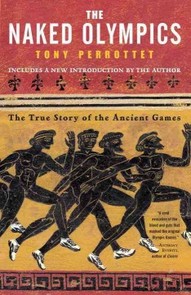 The Naked Olympics: the true story of the ancient games (Random House: 2004) Tony Perrottet A history of the original Olympic games depicts the events of the first competitions more than 2000 years ago, during which tens of thousands of sweltering-hot spectators watched nude athletes participate in such events as hoplitodromia, a full-armor sprint, and the pankration, a no-holds-barred lethal brawl. Travel writer Perrottet treats readers not only to a thorough picture of the games' proceedings but also to glimpses of the shameless bacchanalia, numerous (and often lascivious) entertainments and even corruption that accompanied them. Hmm, sounds like not a whole lot has changed...except the sporting goods companies like Nike and Reebok would never let their endorser-athletes complete sans apparel. How would they show off the swoosh? Perhaps a well-placed tattoo? 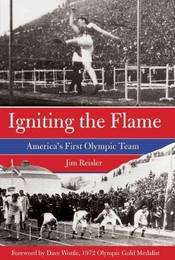 History of a more recent vintage... Igniting the Flame: America's First Olympic Team (Lyons Press, 2012) Jim Reisler The author tells the little-known story of the first modern Olympics, the 1896 Summer Olympics, highlighting the difficulties faced by a fourteen-member American team which had virtually no support heading into the games, held in Athens, Greece. Here's one remarkable anecdote among many: an American Olympian shows up for the discus event, having never really tried it before; some accommodating Greek athletes offer to demonstrate, he practice a bit and winds up winning. Reisler skillfully weaves his story from several narrative threads: the resurrection of the Olympic Games, and the men behind their revival; the primitive means of travel and lodging (no fancy Olympic Village here with 24/7 food courts); and the stories of individual athletes and events. 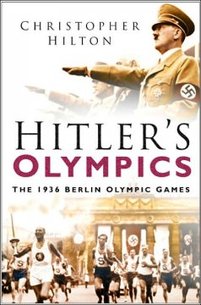 Hitler's Olympics: the 1936 Berlin Olympic Games (Sutton: 2006) Christopher Hilton The Berlin Olympic Games, which remain the most controversial ever held, will have their 80th anniversary in August 2016. Using newspapers, diaries and interviews to recreate the atmosphere during the XIth Olympiad, the author presents an account of the disputes, the personalities and the events which made these Games so memorable. Hitler, of course, used the Games as one of the largest propaganda exercises in history. African-American Jesse Owens won four gold medals in a shining moment for America. 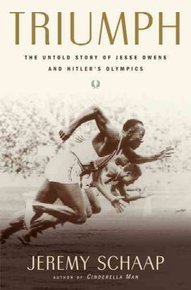 A suitable companion or alternative to the above might be... Triumph: the untold story of Jesse Owens and Hitler's Olympics (Houghton Mifflin: 2007) Jeremy Schaap Schaap (an ESPN host) touches briefly on Owens's life before and after 1936, including his Alabama childhood and his later work for the State of Illinois, focusing most of the book on Owens's track and field heroics. Blessed with amazing speed, he set NCAA records in numerous events. With the help of high-school mentor Charles Riley and college coach Larry Snyder, Owens qualified for the Olympics. After a debate about whether participation in the Nazi Games was ethical—a discussion that had special meaning for African-Americans, whose circumstances were indeed similar to those faced by German Jews—the U.S. elected to compete, setting the stage for Owens to show the world a true superman not descended from Aryan stock. 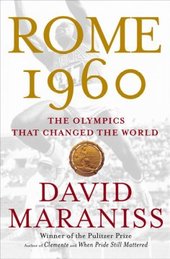 Rome 1960: the Olympics that changed the world (Simon & Schuster: 2008) David Maraniss Whether you prefer sports, politics, or history, the author has you covered in this engaging study of the first commercially televised Summer Games. There were several other firsts in Rome: the first doping scandal, the first athlete paid to wear a certain brand, the first African-American to carry the U.S. flag in the opening ceremonies. The games fed Cold War propaganda as the Soviet Union surpassed the U.S. in the medal tally. Maraniss loads his narrative with human interest stories (the barefoot Ethiopian Abebe Bikila), personal rivalries, judging squabbles, come-from-behind victories and inspirational stories of obstacles overcome (American track star Wilma Rudolph). It might not be true that these Olympics changed the world, but they definitely showcased the changing world of that era. A gold medal to anyone who finishes all five before the Summer Games begin!
0 Comments
Leave a Reply. |
AuthorTo find out more about me, click on the Not Your Average Jo tab. Archives
February 2024
Categories
All
|
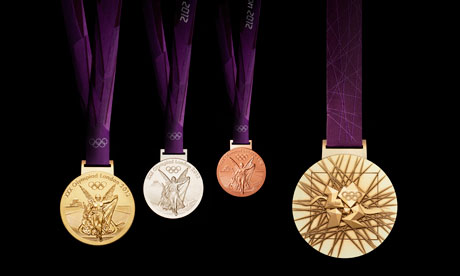
 RSS Feed
RSS Feed